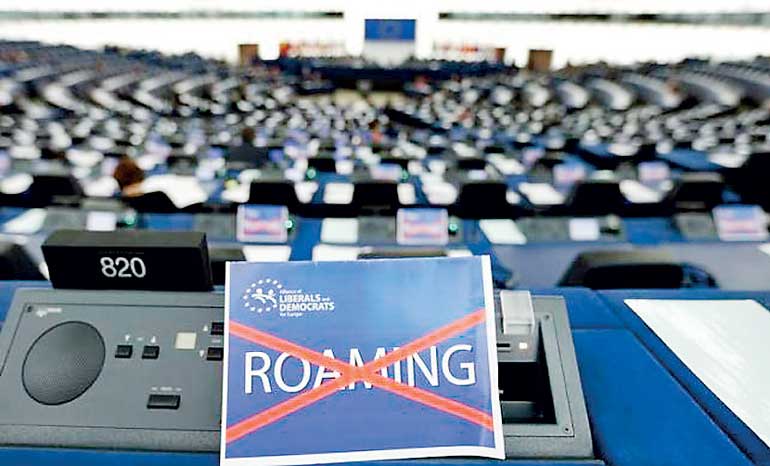Wednesday Feb 18, 2026
Wednesday Feb 18, 2026
Wednesday, 8 July 2015 00:00 - - {{hitsCtrl.values.hits}}

Reuters: The European Union reached a preliminary deal recently to abolish mobile roaming charges across the 28-country bloc by June 2017 and to require telecom operators to treat all Internet traffic equally.
The draft agreement for the end of roaming surcharges on 15 June 2017 marks an important step in the EU’s plan to overhaul the continent’s digital market to boost growth and catch up with the United States and Asia.
However, consumer groups gave the news a lukewarm reception, saying network operators would be able to limit the amount of surcharge-free roaming due to a ‘fair use’ clause designed to stop users permanently roaming with a cheaper foreign contract.
The deal, struck between EU lawmakers and Latvia, which holds the rotating EU presidency, will require approval from the European Parliament and EU member states, some of whom have not wanted roaming charges abolished until December 2018.
In an interim move, roaming charges will drop in April 2016, with maximum surcharges of 0.05 euros per minute of a call or megabyte of data and 0.02 euros per text sent.
That will make the maximum roaming charge about 75% cheaper than under current tariff caps, the Commission said.
The Commission has been setting caps on roaming prices since 2007 and says retail prices for cross-border calls, texts and data have fallen by more than 80% and for data by up to 91%.
EU consumer group BEUC said ending roaming surcharges was reliant on increased mobile competition, which would require an overhaul of wholesale prices paid between operators. This would be a tough task.
Built-in exceptions, such as for ‘fair use’, were also a problem as was the risk that network operators might be inclined to raise domestic prices or trim telecom packages to compensate.
On the issue of net neutrality, the EU plans to order telecoms operators to treat all Internet traffic equally and that blocking would only be allowed for clear reasons, such as counter cyber attacks or child pornography.